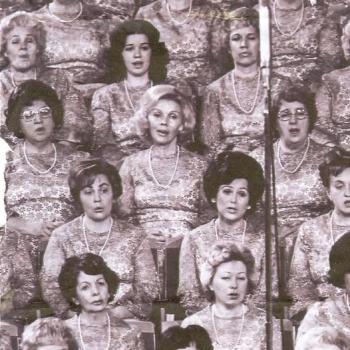 I knew her as a queen–a literal queen, a tiara on her head and roses in her arms, a member of university royalty. She usually wore extensions, make-up, fashionable clothes, heels. To see her in the orange jumpsuit, her hair uncoiffed, her body appallingly thin, her affect numb, was enough to bring me to tears.
I knew her as a queen–a literal queen, a tiara on her head and roses in her arms, a member of university royalty. She usually wore extensions, make-up, fashionable clothes, heels. To see her in the orange jumpsuit, her hair uncoiffed, her body appallingly thin, her affect numb, was enough to bring me to tears.
I had just read the twenty-seven charges against her and was certain that the judge would dismiss them all. These were charges from her childhood! From when she was eight years old up until when she was seventeen!
Within the next five minutes, I heard the judge say, “In my court she is guilty.” I was stunned. I know the legal standard and was relieved that the public defender arose to say, “Your honor? Innocent until proven guilty?”
“Yes,” said the judge. “But in my court, she is guilty.”
Those words (the public defender’s and the judge’s) which I heard and documented in emails to others were deleted in the court recording.
These are the words which remain in the recording–which are damning enough.
The hearing was for bail reduction. A $50,000. bail had been set.
This is the transcription of relevant portions:
Public Defender: At first glance, $50,000 might seem reasonable, but looking closer, I think that it is an unreasonable amount in this case. The allegations stem from when [the defendant] was 8 years old until she was 17. She is now twenty-four. She has now gone to college, has spent time at the University where she was the president of some clubs… She transferred to the University… where she was enrolled for this semester.. She has been living a productive life. These allegations are a delayed report of seven years. She has been living a productive life for seven years. She has been a productive member of society, doing what we hope young people will do–going to college, etc. …We would ask that the court make the bail bondable and significantly reduced…”
(The prosecution takes the next five minutes to declare that the bail is reasonable because of the severity of the accusations.)
Now, read these next sentences carefully. Remember that the judge had said “In my court, she is guilty” and responded with those same words when challenged by the public defender.
Public Defender: “I think that basing the bail on the severity of the offenses… is punitive only and would be presuming guilt prior to her being tried.”
Judge: “Well, we do presume guilt based on a cause standard when we set bail. We–we don’t presume guilt but guilt is established by probable cause, so we’re not really dealing with the presumption of innocence at the bail stage. There’s probable cause to believe that she committed these offenses so we set bail based on whether she’s a flight risk or whether she’s a threat to the community. Those are the two primary factors.”
Public Defender: “I think I would disagree that guilt is presumed at any level. I think there is probable cause that a crime was committed, but that’s not at all guilt.”
Judge: “Well, as I said, we’re not presuming guilt–I changed my statement–but there is probable cause to believe that she committed these offenses. So that’s the standard on which we set bail. So the presumption of innocence does not apply when you’re setting bail. We see whether there’s probable cause and then you don’t wrestle with the question of whether she did it or not. You simply set bail if there is probable cause.”
Public Defender: “Because of the ease in which the court can place restrictions that would negate any risks to the community by putting in conditions on her release…”
Judge: “If people always obeyed the court’s restrictions–I mean, she very well may, but on the other hand, she’s kind of a victim of the company that she’s in right now. I mean, a lot of people who are–like we’ve seen today–they don’t want to follow the conditions the court places upon them.”
Take a breath and read those last two sentences. Note these words: “She’s kind of a victim of the company that she’s in right now.”
What company did he mean? What company did he imagine? He had no prior acquaintance with her and had just been told that she was a university student who was the president of several clubs.
The transcript continues:
Public Defender: “She has no prior criminal history. She has no allegations that are within the last seven years. So assuming that she’d violate any conditions–we have more evidence that she wouldn’t violate the conditions, that she would come back to court, and safety conditions could be placed upon her…”
Judge: “Thank you. At this point, the court set $50,000 bail, however… there is a very real possibility based on her criminal history here in terms of this offense, which stretched over a long period of time, that she would [violate restrictions]…”
Take a look at the last sentence. The judge has just referred to her “criminal history” even though he was told that she had no criminal history. He is treating the accustions as her “criminal history.” That violates the due process guarantees in the Constitution.
Judge (continued): I don’t know anything about her psychological make up and psychosexual tests… are not reliable anyway. At this point, we don’t know what she might do and we don’t know what she’s been doing the last few years…Had she taken responsibility for this upfront, before she became an adult, she would have been in the juvenile system…This didn’t stop when she was twelve years old, it kept going on until she was, I don’t know–
Once again, look at that sentence. The accusations are treated as proven facts.
Public Defender: “Allegedly it did.”
Judge: “Well, it kept going. There’s probable cause to believe it kept going. The court is not going to argue guilt or innocence. She is presumed–not presumed, but she has probable cause to believe that she–so I’m not going to say that we’ll release her because she maybe didn’t do it.”
I stared at this impossible reality, this white judge declaring the black defendant guilty in a PRELIMINARY hearing.
With one minute left, the public defender said, “Your honor, can she address the court?”
What follows is an exact transcription, with identities protected. Keep in mind that this is the first time she has spoken in court. The judge holds her fate in his hands. Put yourself in her place.
Judge: “Well, I’ve already spoken, but she can address the court, but I’ve already made my ruling, but you can address the court.”
Maye: “Your honor, as far as the allegations—they are just that. I–.”
JUDGE INTERRUPTS
Judge: “Well, there’s probable cause that you committed this.”
Maye: “I understand.:
Judge: “And you’re right. When you get to trial, you’re presumed innocent. Right now, the court does not regard you—does not apply the presumption of innocence when setting bail. The court has to state that there’s probable cause that you committed these offenses. That’s how we do things.”
Defendant: ” I—”
JUDGE INTERRUPTS AND RAISES HIS VOICE.
Judge: “I want to get away from this guilt and innocence argument; it’s not applicable here. For the fourth time, okay? Anything else?”
Defendant: “I was just going to say… as far as your comment–and as far as what I’ve been doing the past few years–I have been in rigorous therapy because of the abuse that I suffered as a child under the care of XXXXXXX and XXXXX. I’m not here to tell you who I am or what I am. I mean, I am innocent, but we’ll go through that at the trial. But I did want to let you know that it’s not—that I’m not a monster.”
Judge: “Well, I certainly hope that’s the case. I certainly hope that’s how things turn out, okay?”
Within the fourteen minutes and thirty-eight seconds of the preliminary hearing for bail reduction, I had heard the constitutional standard of presumed innocence overtly violated. (Actually, it was slightly longer than that, given that parts were deleted from the recording.)
When I met with the public defender later, I learned some more troubling things.
That will be in the next installment.











